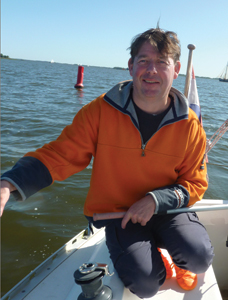 European Commission makes fighting climate change central to Europe’s economic recovery
European Commission makes fighting climate change central to Europe’s economic recoveryOn 21 July, European Union (EU) leaders agreed a deal for a post-coronavirus recovery package and a new EU budget for 2021–2027 (€ 1.1 trillion) following a four-day summit. The recovery package remains consistent with proposals raised in May, which suggested a € 750 billion spending package for green and digital transitions. The recovery package is a combination of grants and loans.
The European Commission has said that it will make fighting climate change central to Europe’s economic recovery from the coronavirus pandemic. A total of 30% of the recovery package has been allocated to spending on green and digital transitions. Spending will be guided by a new sustainable finance taxonomy, which will also encourage private investment in technologies that will contribute to at least one of six environmental metrics and objectives set out by the EU, including climate change mitigation. An important aspect of the green recovery plan is the fact that it is the Commission not the member states that will oversee how the funding is spent; however, several member states have already announced recovery plans which focus on a green economy.
Also, on 1 July, Germany took over the EU Council Presidency. The German Presidency aims to develop and adopt several important energy policies, with a strong focus on offshore wind. The German Presidency Programme underlines the fundamental importance of the EU Green Deal for Europe’s recovery from COVID-19. To help deliver this transformation, the German Presidency is betting on offshore wind and renewable hydrogen.
The Presidency Programme says that the rapid expansion of offshore wind has a key role to play in achieving the EU’s ambitious renewable energy targets and ensuring the security of energy supply. The German Presidency also suggests development of joint offshore wind projects between countries, which is also the aim of the North Seas Energy Cooperation (NSEC). NSEC is a regional energy cooperation between Belgium, Germany, Denmark, France, Ireland, Luxembourg, the Netherlands, Norway and Sweden to facilitate the integration of large-scale offshore wind in the European energy markets as well as more coordinated offshore grid development.
At a meeting co-chaired by German Minister Peter Altmaier and Commissioner Simson, ministers from NSEC countries and the European Commission agreed a joint statement agreeing that existing barriers should be tackled for an accelerated deployment of multinational hybrid offshore wind energy projects in the North Seas, as well as other projects.
Cooperation in the coming months will focus on further development of concrete proposals for hybrid projects, maritime spatial planning, and a long-term vision for the role of offshore renewable energy by 2050, including offshore and onshore grid planning and the role of hydrogen.
After the pause of many events due to COVID-19, one of the first events organised will be the WINDFORCE Conference. The 16th WINDFORCE Conference will now take place on the new date of 3 and 4 September in Bremerhaven, Germany. The event is the central meeting point for the German and international offshore wind industry. Although in the first half of 2020 only 219MW of offshore wind fed into the German grid, for the first time the country is betting big on offshore wind. In the draft law to amend the Offshore Wind Energy Act adopted by the Federal Cabinet, new targets for the further expansion of offshore wind energy up to 2040 were defined. Instead of the offshore target of 15GW as previously defined in the German Renewable Energy Sources Act or EEG, a new target of 20GW is to be achieved by 2030. By 2040, 40GW of offshore capacity is planned. If you want to learn more about the future of (German) offshore wind, I suggest signing up for the event in Bremerhaven. It would also be nice to see each other again in person.
Enjoy reading,
Floris Siteur
Publisher
Publisher
